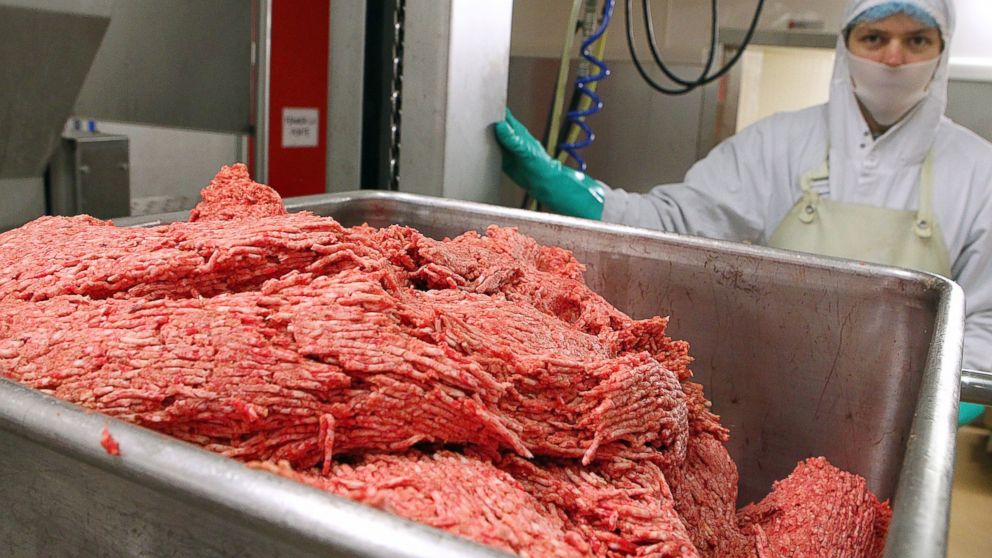What To Know About Mad Cow Disease Amid Beef Recall
A Missouri company has recalled 4,000 pounds of beef in a mad cow disease scare.

June 13, 2014— -- intro: A Missouri company has recalled more than 4,000 pounds of beef over fears that it might contain nerve tissue linked to mad cow disease.
The recall comes a week after the death of a Texas man from variant Creutzfeldt-Jakob disease, a fatal brain disorder tied to eating meat from cows with bovine spongiform encephalopathy, better known as mad cow disease.
The disorder was discovered nearly two decades ago but continues to elude scientists searching for a diagnostic test or cure.
Here are some things you probably didn’t know about mad cow and Creutzfeldt-Jakob disease.
quicklist: 1category: Things to Know About Mad Cow Diseasetitle: It’s Not Viral or Bacterialurl:text: Mad cow is considered an infectious disease, but it’s not caused by a virus or bacterium. Rather, it’s thought to be caused by an abnormal protein.
The wayward protein, known as a prion, causes sponge-like holes in the cow’s nervous tissue – a condition formally known as bovine spongiform encephalopathy. If a human eats beef containing the rogue protein – likely contaminated with parts of the cow’s nervous system – the human’s prion proteins take on the same harmful properties, causing a degenerative, fatal brain disorder known as variant Creutzfeldt-Jakob disease, or vCJD.
The Jackson, Missouri, company that issued this week’s recall said its meat could contain dorsal root ganglia, clusters of nerves near a cow’s spinal cord where abnormal prions can reside. Fruitland American Meat realized it might have been improperly tracking the age of cows. And if a cow is older than 30 months, the dorsal root ganglia must be removed.
Humans cannot become infected with harmful prion proteins by being in contact with sick cows or drinking their milk, the Department of Agriculture said in 2012, when a central California cow contracted the disease.
quicklist: 2category: Things to Know About Mad Cow Diseasetitle: Human Cases Were Imported to U.S.url:text: Health officials think the latest vCJD victim contracted the disease outside the United States, according to the Centers for Disease Control and Prevention. He had recently traveled to Europe and the Middle East, the agency said in a statement.
Of the previous three cases, two are believed to have contracted vCJD in the United Kingdom and one is believed to have gotten it in Saudi Arabia, according to the CDC.
There have been 220 cases of vCJD worldwide since it was discovered in the United Kingdom in 1996. Most cases have occurred in France and the United Kingdom, with 177 and 27 cases, respectively.
quicklist: 3category: Things to Know About Mad Cow Diseasetitle: Only 4 U.S. Cows Have Been Diagnosedurl:text: Four U.S. cows have been diagnosed with bovine spongiform encephalopathy since 2003, according to the CDC.
The most recent case was confirmed in 2012 in a California dairy cow that was subsequently euthanized. The cow did not infect any people, according to the CDC.
There have been 184,500 cows with the disorder in the United Kingdom since the mid-1980s, when it was discovered, according to the CDC. Although cases peaked in 1993 with nearly 1,000 cases per week, but it dropped to only 11 cases in all of 2010.
quicklist: 4category: Things to Know About Mad Cow Diseasetitle: American Red Cross Restricts Blood Donationurl:text:Mad cow disease and vCJD may be rare, but the American Red Cross isn’t taking any chances when it comes to blood donation.
Anyone who lived in the United Kingdom for more than three months between 1980 and 1996 cannot donate blood, according to the Red Cross. Neither can anyone who has had a blood transfusion during that time in the United Kingdom and France.
“There is no evidence that CJD can be transmitted from donors to patients through blood transfusions,” the Red Cross writes on its website. “However, nobody knows for certain that this cannot happen.”
Diabetics who have taken bovine insulin and people who’ve had certain types of transplants and transfusions are also ineligible to donate blood.






